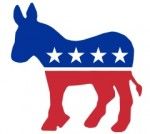What’s Left: It’s About Time

In his recent State of the Union address, President Obama made clear that repealing the military’s “Don’t Ask, Don’t Tell” policy was an important part of his agenda for 2010. Since the announcement, leading members of the military establishment and the Department of Defense have spoken in support of the president’s initiative.
“Don’t Ask, Don’t Tell” was passed as a compromise during President Clinton’s first term. While the policy is superior to what the military had in place previously, it is still flawed. Senator Saxby Chambliss summed up the so-called benefits of the policy stating that, “In my opinion, the presence in the armed forces of persons who demonstrate a propensity or intent to engage in homosexual acts would very likely create an unacceptable risk to those high standards of morale, good order and discipline, and effective unit cohesion and effectiveness.” Clearly, this opinion reflects unmasked homophobia that is grounded in antiquated prejudices.
Leading Republicans have expressed opposition to scrapping the policy. Senator John McCain once stated (on the campaign trail, of course) that he would be in favor of repealing the policy should top military personnel agree to do away with it: “The day that the leadership of the military comes to me and says, ‘Senator, we ought to change the policy,’ then I think we ought to consider seriously changing it.” Apparently, the Chairman of the Joint Chiefs and the Secretary of Defense, as well as a former Chairman of the Joint Chiefs, Colin Powell, are not sufficient. Congressman John Boehner based his opposition in an apparent belief that the government cannot multitask, as he stated on Meet the Press, “At a time when Americans are asking ‘where are the jobs,’ why do we want to get in this debate?”
Unlike Congressman Boehner, I have higher hopes for the US government, and I think that it must tackle this policy. “Don’t Ask, Don’t Tell” represents a vestige of prejudice within our society, suppressing the voices of individuals with the threat of military discharge. The policy forces individuals to lie in order to preserve their livelihood, and in any other career, it would be deemed unacceptable and blatantly discriminatory.
In recent testimony, Chairman of the Joint Chiefs, Admiral Mike Mullen, eloquently defined his objections to “Don’t Ask, Don’t Tell”: “No matter how I look at this issue, I cannot escape being troubled by the fact that we have in place a policy which forces young men and women to lie about who they are in order to defend their fellow citizens.”
He continued, “For me personally, it comes down to integrity – theirs as individuals and ours as an institution.” Military service represents an awesome sacrifice for and dedication to one’s country, and I fail to see how devotion to a partner of the same-sex can interfere with devotion to one’s country.








